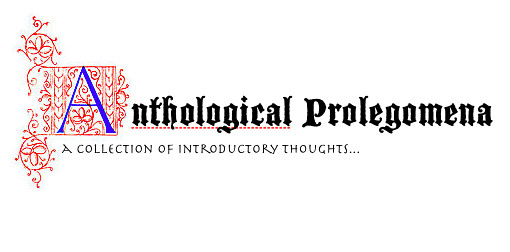We too often identify intellectualism myopically as merely one of many available tools to the evangelist for the persuasion of the convert. This simply misses the mark. It is, indeed, the Holy Spirit that opens the eyes to receive the truth of Christ of whom God calls to Himself; the repentance of the sinner is by no means the unguided product of crafty or well structured sermon. Having said this, it seems impossible to be called to believe in something that is so ill-defined as “you need to get right with God” or “accept Jesus in your heart.” (See pages 49ff & 59ff for more on this…)
Still, this moment is not what we are primarily talking about when we discuss Christian intellectualism. The acceptance of Christ is not the point at which our minds are satisfied and thus to stop seeking the questions of Christ and His dominion. To cease consideration of Christ and the workings of the Divine upon conversion is truly the shame of the modern church, largely resultant previously from the Second Great Awakening and currently sustained through the overly focused “seeker” model that does much to sensationally tailor services to the seeker while all but forgetting the need to build up and train the Christian for a life of maturity and ministry.
It is, instead, at conversion that we really catalyze the true beginning of our intellectual responsibility to pursue Truth. As heaven and earth intersect within us through the ministry of the Holy Spirit, truth has just become accessible and true wisdom finally attainable. We have just begun. We instantly find ourselves in Genesis 1 for our own birth into Christ’s kingdom; He has created life out of death. So, now what?
Willard fleshes this answer out immediately in his introduction through his reference from Paul’s letter to the Colossians, claiming that “the outcome is that we increasingly are able to do all things, speaking or acting, as if Christ were doing them” (11). This is why the modern church is so mediocre in pursuing holiness and conversely so exceptional in mirroring the trappings of this world. At conversion, we think we have finished our consideration of Christ and that all is left is to apply. Yet we have little truth for application. We have no context of understanding. We then subject ourselves to teachers primarily driven through their personal opinion resultant from their own historical illiteracy, linguistic incompetency, lack of serious doctrinal study, and absence of ecclesiological authority. Their words are most often empty, occasionally dangerous, and yet almost always sweetened through their proof texted sermons; however, the church largely has no ability to discern their teachings.
As so many of our Christian leaders are themselves intellectually void, how does one expect the parishioner to excel in his love for God in a right way? Perhaps reading this book will at least serve as a glimpse to some of the importance of seeking Truth. From there, one will find a wealth of instruction and training for the serious Christian. Though the church may not always reflect it, we have a wealth of pedagogues, both antecedent and contemporary. Some, however, might be wondering why it even matters…especially if this is not at all about conversion.
The answer is worship. Specifically, the answer is found in being a resurrection people, called from death to life to live as a beacon and vision for what God accomplished through Christ in his death and resurrection. Moreland calls this being “salty.” It is to interact in a world groaning for redemption in a way that effectively proclaims that God is good, redemption has come, and Christ is on the throne. It is to be not only objects of redemption but to now also be agents of redemption, ushering in the kingdom of Christ. Ashamedly, this gets lost through abhorrent eschatology, much of it popularized through entertaining yet theologically muddled children’s books. Here again is revealed the importance for a discerning mind to separate the culture (even that of the fundamentalist church) from the call of Christ to His people. It seems difficult for Christians to seriously engage in worshiping God when they have no idea why He has them here or why they are ultimately to pursue truth in the grand scheme of God’s plan and workings through history. Yet, I digress. Wrapping things up…
To pursue truth, though, is to pursue beauty, justice, and love. It is to live as God created us to live, as we await His recreation of heaven and earth. None of this, however, is possible without loving God with your mind, without seeking out and meditating upon His truths. How are we to proclaim (much less appreciate) the resurrection, baptism, the eucharist, the prophets, the law, grace, the ascension, the cross, etc if we do not know that of which we speak? How can we worship that which we do not know? God desires relationship with us to the point of Christ on the cross. He knows us and yet still pursues us. When we cease to seek him, to learn of Him and from Him, we are essentially turning over and falling asleep as He is whispering life into our fragile ears.
A professor of mine once said something very pertinent to our discussion:
“The most important thought you will ever think is what you think when you think about God. For what you believe about God determines every other facet of your life.”

